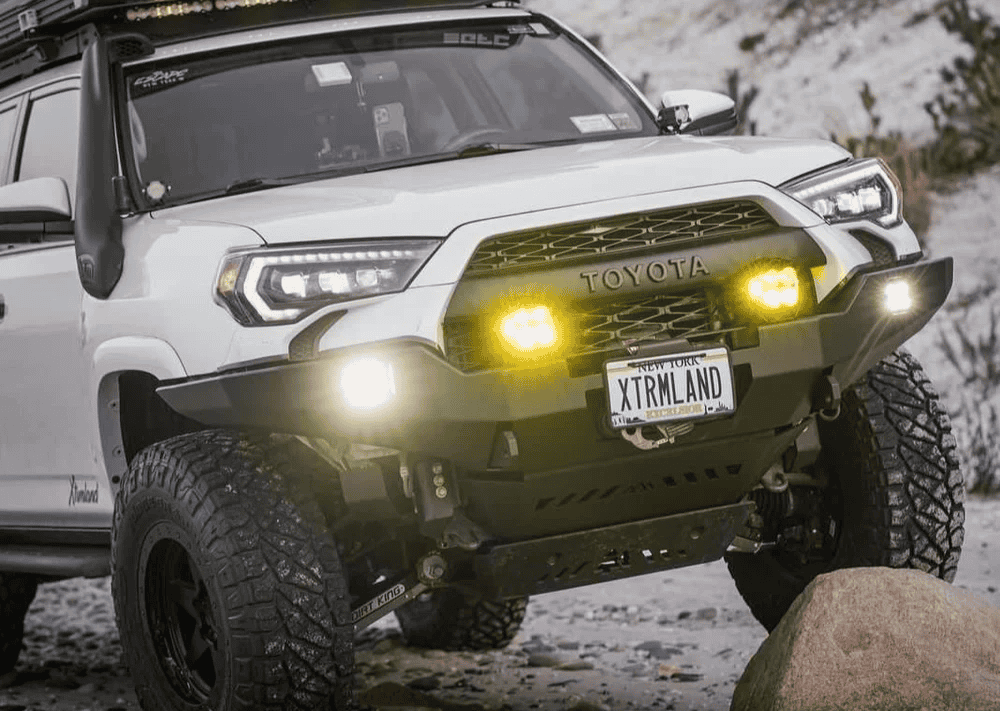Overland Vehicles

Durability starts at the system level, not just the top layer. Subfloor condition, moisture management, adhesive choice, and edge detailing are the pillars of a long lasting installation. In fixed buildings, concentrated loads show up as carts, foot traffic, and occasional spills. In vans and overland rigs, the floor also deals with vibration, temperature swings, and rolling loads from bikes, tool chests, and coolers. A build that handles both worlds uses materials tested for abrasion resistance, impact, and slip resistance while keeping water out of seams.
Every durable flooring installation begins with a flat, clean, structurally sound base. High spots are skimmed, low spots are filled, and fasteners are countersunk so pressure points do not telegraph. Moisture matters just as much. Concrete is tested and sealed if needed, and wood substrates are inspected for rot and treated for stability. In vehicles, sealed marine grade plywood and moisture barriers help keep humidity from swelling the structure. When moisture is controlled, adhesives cure correctly and edges stay tight.
Adhesive selection should match the substrate and use case. Pressure sensitive adhesives suit many resilient floors, while two part urethane or epoxy systems are chosen for extreme duty. Seam treatment is another make or break step. Heat welded seams in sheet vinyl and carefully rolled joints in plank products reduce water intrusion. Every installation needs a plan for thermal movement, especially in rigs that see mountain cold and desert heat. Allowing proper expansion space keeps edges from peaking or gapping.
Slip resistance protects people on wet days and muddy trail returns. Look for surfaces that maintain grip when damp without trapping grime. Underlayment can add sound damping and thermal comfort, a noticeable upgrade in hollow vans and busy shops. Finally, choose a surface that cleans with simple tools and non harsh cleaners. The less effort it takes to maintain, the longer it will look new and perform well.
There is no single best floor for every job, but several families of materials repeatedly prove themselves. Luxury vinyl plank with a thick wear layer offers impact resistance, water resistance, and quick cleaning. Commercial sheet vinyl with heat welded seams creates a near seamless water barrier that is easy to sanitize. Rubber coin or ribbed rubber handles wet boots and gear impacts while adding comfort underfoot. In fixed facilities, high build epoxy with aggregate gives a hard wearing, chemical resistant surface that is ideal for shops.
Edges are the first places to fail when they are not protected. Aluminum or stainless thresholds at doors, sealed terminations under cabinets, and bullnose trims at step downs keep water from wicking under the surface. In rigs, l tracked tie downs and smart floor rails must be integrated with the surface so loads do not twist or crush the edges. A durable installation treats every doorway and hatch as a water entry point and seals accordingly.
Durable floors are judged by how they handle real loads. Consider the heaviest items that will cross the surface, like a motorcycle dolly, rolling toolbox, or office cart. Match the material and adhesive to the expected rolling load, not just standing weight. A thicker wear layer and dense core resist dents, while textured finishes keep scuffs from showing. The right combination reduces maintenance cycles and replacement costs.
Dense, non porous surfaces that do not trap moisture remain cleaner and healthier. Sealed seams, coved base, and smooth transitions prevent grime from building up in corners. Many modern resilient products meet strict emissions standards, an important factor for compact cabins where people sleep and work. Proper ventilation during installation and full cure time keep air quality high.
Mobile environments pile on unique demands. Floors see grit, snow melt, camp mud, and constant vibration. That is why subfloor sealing, waterproof seams, and protected edges take priority. Materials should be chosen not only for abrasion and water resistance but also for thermal stability and grip. When a floor is designed as a system, it shrugs off daily abuse and stays quiet, clean, and safe.
OZK Customs brings that systems approach to adventure vans, overland trucks, and commercial vans. Our team in Fayetteville builds floors that integrate tie downs, smart rails, and thresholds without weak spots. If you are planning a rig, see how we outfit complete platforms on the Overland page: Explore Overland Rigs. For specialized layouts and heavy duty use, our upfit process covers insulation, subfloors, and all finish work: Custom Overland Upfit. Curious about our process, craftsmanship, and client experience, start here: Why Choose OZK Customs.
Tell us how you travel, what you haul, and how you clean. We will specify the right materials, seal the edges, and deliver a floor that works from jobsite to trailhead. Share a few details and our team will map a durable solution that fits your timeline and budget.
Ready for flooring that holds up to work, weather, and weekend miles. Tell us how you use your rig, and our Fayetteville team will spec and install a floor that lasts. Submit the form to start your custom build or partial upfit today.
ADDRESS:
6159 E Huntsville Rd, Fayetteville, AR 72701
PHONE:
(479) 326-9200
EMAIL:
info@ozkvans.com